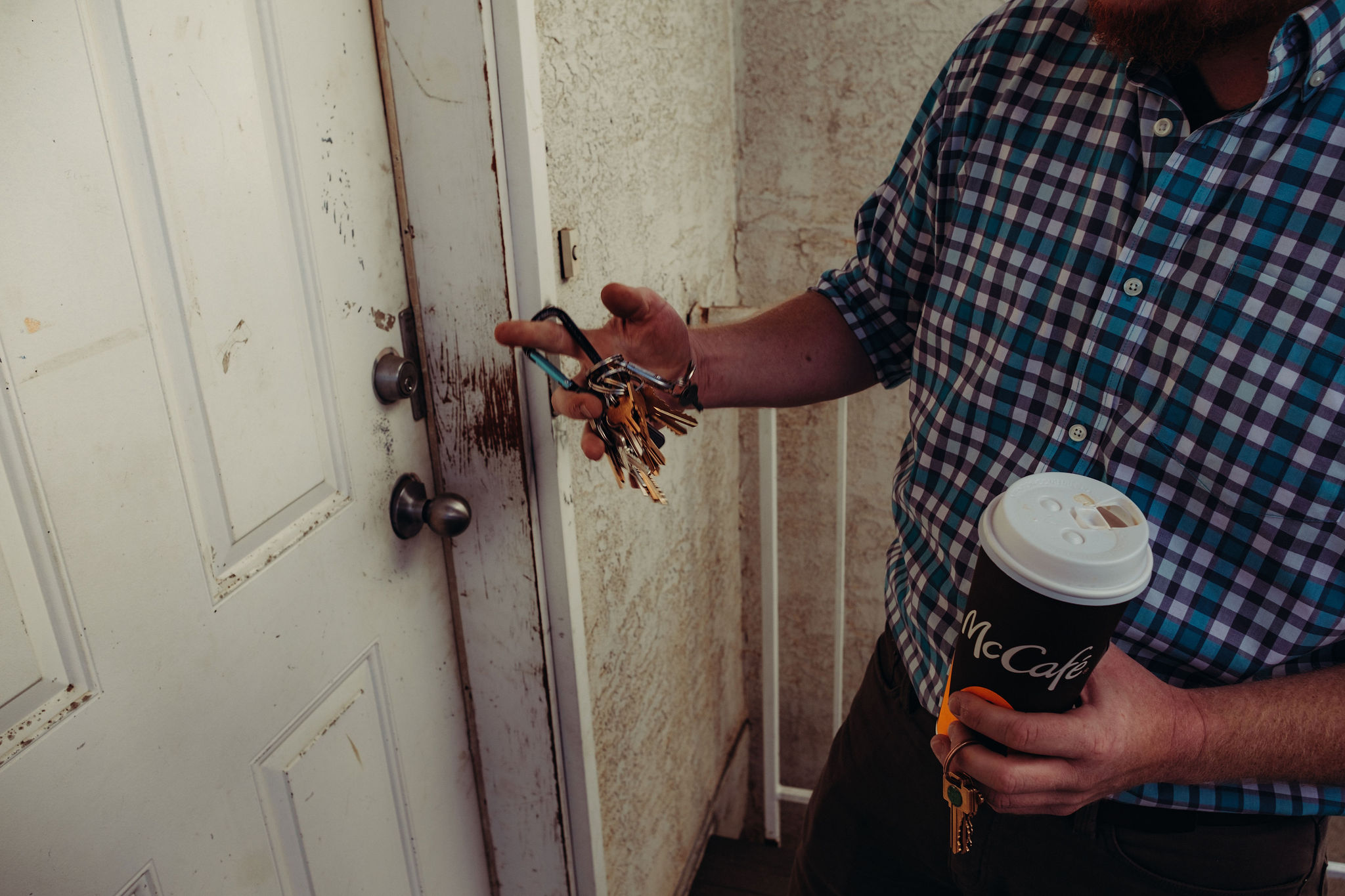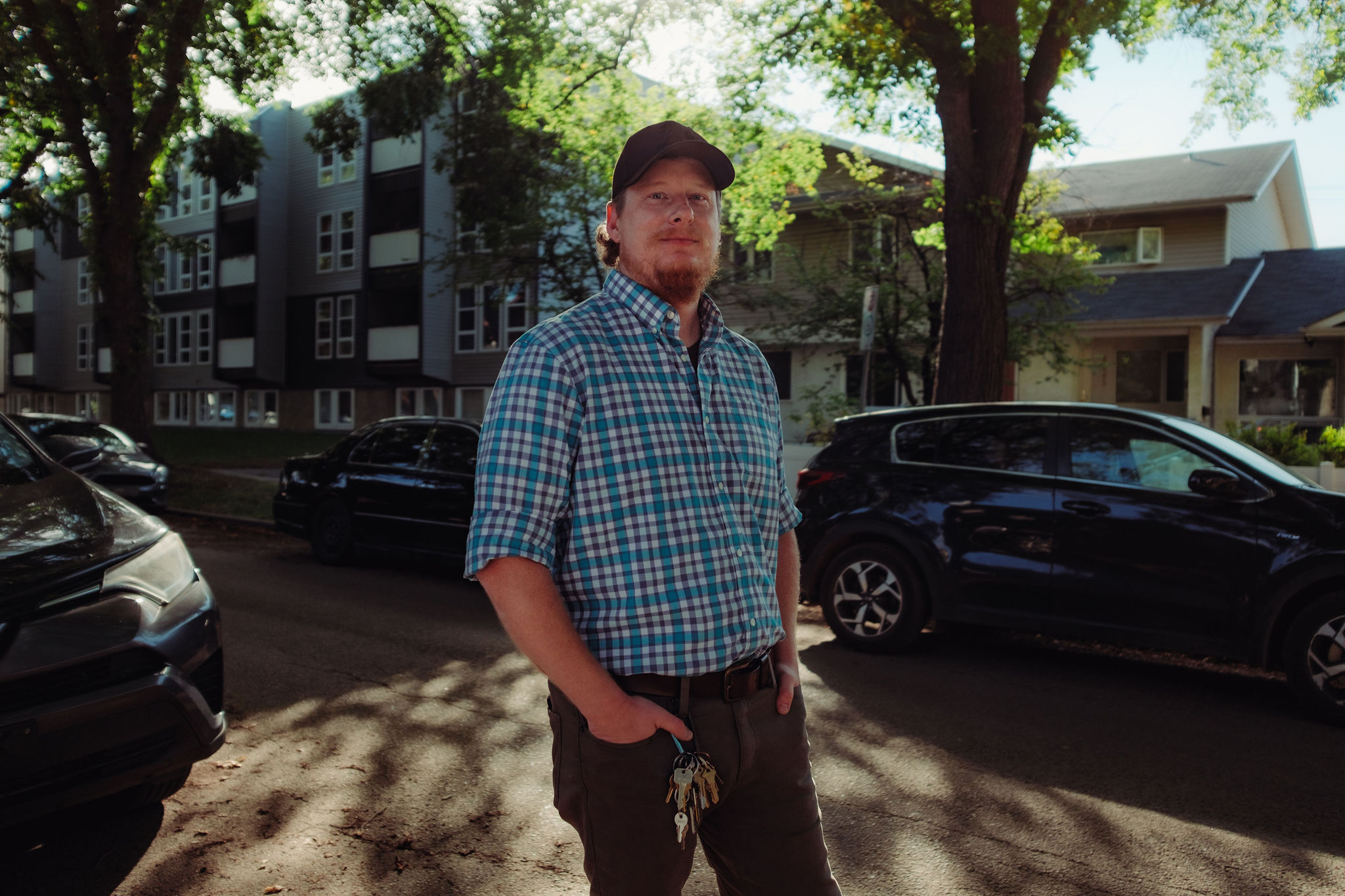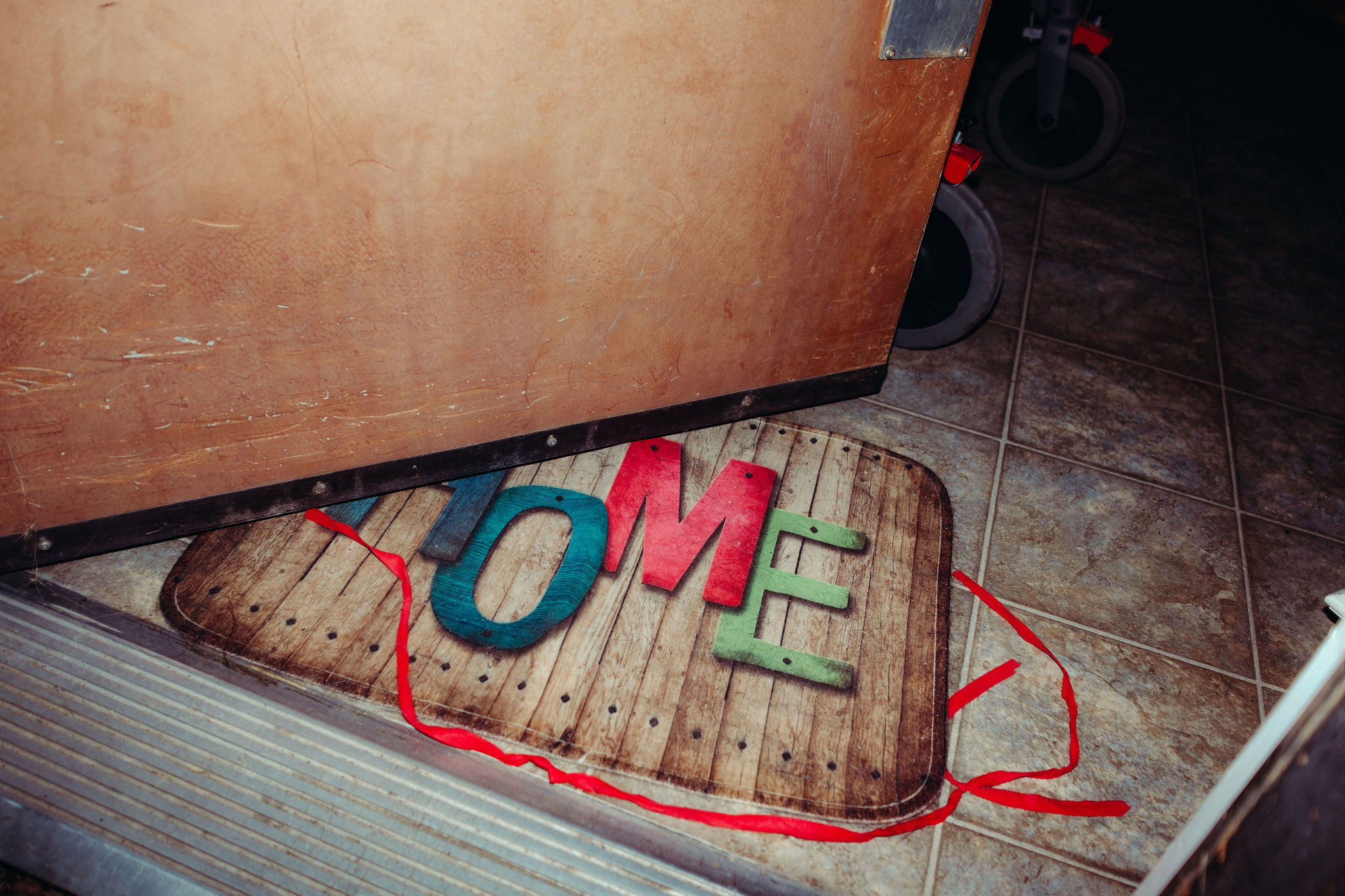This is one of 12 interviews conducted with various Edmontonians about their experience with the housing system. It has been edited for clarity and length. Read more about why and how Taproot embarked on this series.
Chris Batdorf is a housing manager with Right at Home Housing Society, a charity that helps to house Edmontonians who have nowhere safe to live or spend a disproportionate amount of their income on housing. The society owns and operates more than 30 rental developments, housing more than 1,000 individuals and families by renting that space below market value. Batdorf graduated with a bachelor's degree in geography from the University of Lethbridge in 2010, and since then he has worked with vulnerable and hard-to-house communities in roles with the YMCA of Northern Alberta in Edmonton, Homeward Trust Edmonton, and e4c.
Can you tell us what role you play in the housing ecosystem now?
I am a housing manager with a charitable nonprofit housing provider that develops and maintains and operates its own affordable housing in the city of Edmonton.
You grew up in Sherwood Park in a middle-class family. How did you end up in affordable housing?
It was kind of a long and windy road. I guess my family was always involved in volunteering and improving the community. I was studying geography at the University of Lethbridge, and in my last semester I was taking an urban geography class with Dr. Tiffany Muller Myrdahl. One of the topics was Housing First. The concept of Housing First is where you house people, and then you build supports and community around them to help them maintain stable housing. That was kind of the catalyst for me in understanding how our built environments create social inequality. That was the moment when I said "This is what I want to do!" I wanted to help people less fortunate in the universe.
At the time, I was a struggling student, I used the food bank, I had to borrow from the bank of Mom and Dad just to pay my rent. I had student loans from the federal government and the province. When I graduated, I was $40,000 in debt without a job, because it was the summer of 2010 in the middle of a recession. So I moved back in with my parents as part of the boomerang generation.
You found a way to become involved in helping people fairly quickly though?
Yeah, I started with the YMCA of Northern Alberta and their downtown Edmonton housing complex, which was a 160-bed, dormitory-style residential complex.
Most of the time I was there, when I was full-time, was night shift, so I really got to interact with individuals. I would usually start when people were finishing dinner, or starting dinner, or coming back from work. I developed an understanding of the Residential Tenancies Act and how to help people to find affordable and appropriate apartments and anything else they needed. Sometimes they would come in with no identification and we would have to connect to the after-hours emergency income support for confirmation of who they were, and get them set up with some sort of funding.
After three years full-time at the YMCA, I moved over to Homeward Trust as a housing outreach worker, then after two years I became the housing outreach coordinator, so I was overseeing a team of five housing outreach workers, and then I moved into landlord relations for five and a half years. Landlord relations was kind of an external stakeholder engagement department.
So you moved from a position where you were helping people find housing to a position where you were dealing with landlords who were providing housing. How did that work?
It's a very uncomfortable fence to sit on. On one side, you're trying to help people maintain their housing, so you're supporting Housing First teams and the support staff there with understanding the Residential Tenancies Act, and the obligations and covenants of the landlord under that act. On the other side of the fence, you're holding Housing First participants accountable. So a lot of times you're trying to help one team to maintain someone's tenancy but on the other hand you're helping a landlord to evict somebody else, because they're not a good tenant, because they don't have the behaviours that are conducive to living in multifamily housing.

Chris Batdorf searches for a key at the door of one of the apartments he manages in the Boyle Street neighbourhood. (Jordon Hon)
Did any of your experiences change the way you look at housing and the housing ecosystem?
Like most people when you enter into the social services or the helping industry, I think for me, ignorance was bliss. I thought "I'm going to help, I'm going to do good," but then as I went through events, things changed. There's many types of trauma, you know. It's not always what people think, like violence or horrible catastrophic things, it's the small traumas of seeing recurring patterns that nobody else has seen. It's also the trauma of trying to address those patterns in a system that sometimes won't recognize them.
Do you think the drive to end homelessness in Edmonton is going well?
Is it going well? Talk about loaded questions! On a binary between yes and no, it's not going well because we have people who are homeless and houseless, and if you don't have the safety of a house or apartment or condo or anything that is structurally sound to building code, you are in harm's way. What are your hopes for housing in Edmonton?
My dream would just be able to say that the term "shelter" is removed from the social services lexicon. I think as a society we have progressed to the point where people, regardless of their means, regardless of their situation, should be able to go and receive a modest and appropriate habitable space where they can access the necessities of life like proper hygiene and nutrition, and then be able to move on.
This interview was conducted on Feb. 28, 2024. The photos were taken in September 2024.


